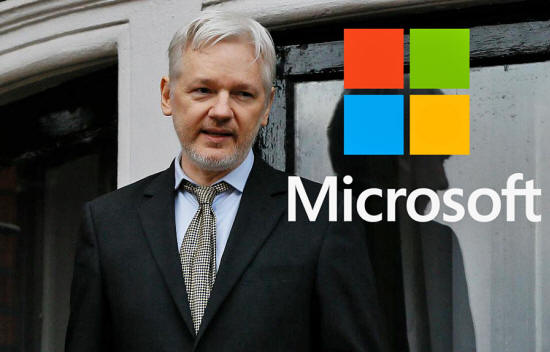|
from
Collective-Evolution Website
Recently, an installment of WikiLeaks' Vault7 documents came to light that exposed two CIA malware programs that specifically infect Microsoft computers with the purpose of carrying out tasks on infected computers, checking for scheduled events, and collecting data.
The revelation put Microsoft in the hot seat, with people speculating that the tech giant may have been aware that the CIA works with features specifically built into Microsoft computers to collect data and perform tasks.
Microsoft's history would suggest the worst, from Edward Snowden's 2013 leaks that revealed Microsoft had,
...to the NSA bragging about their newly acquired ability to triple the amount of Skype video calls being collected through Prism just nine months after Microsoft bought Skype.
Microsoft's CEO had an intriguing and controversial response to the new WikiLeaks documents.
At the company's 2017 Build conference, Microsoft CEO Satya Nadella warned the technology industry against creating a dystopian future, which authors including George Orwell and Aldous Huxley have predicted in the past.
The main screen in the conference hall then lit up with Orwell's 1984 and Huxley's Brave New World.
He urged the importance of people trusting in technology.
While well-spoken, is it possible that Nadella's words are empty, and merely just a diversion from the truth?
Examining Microsoft's history, and acknowledging how much the company has worked with the government, it seems possible Nadella is only trying to keep people from realizing Microsoft is, indeed, prepared for such an Orwellian future...
|


